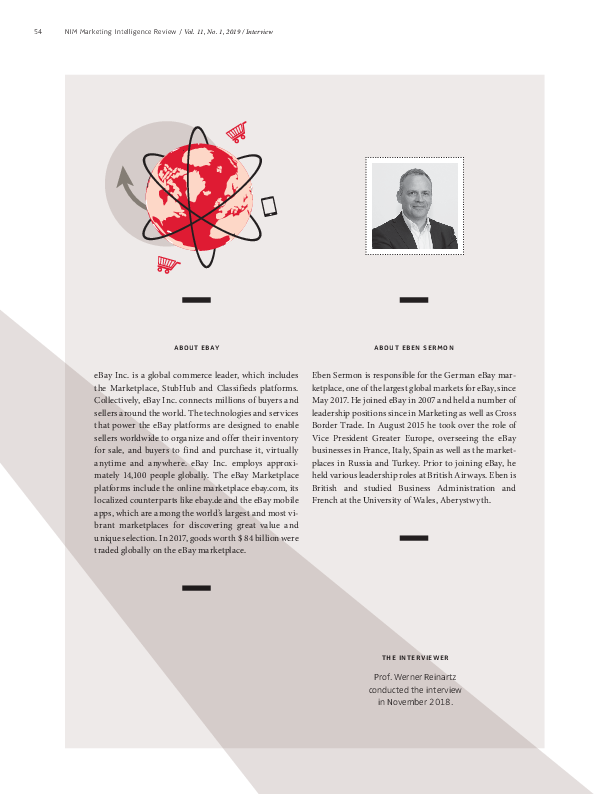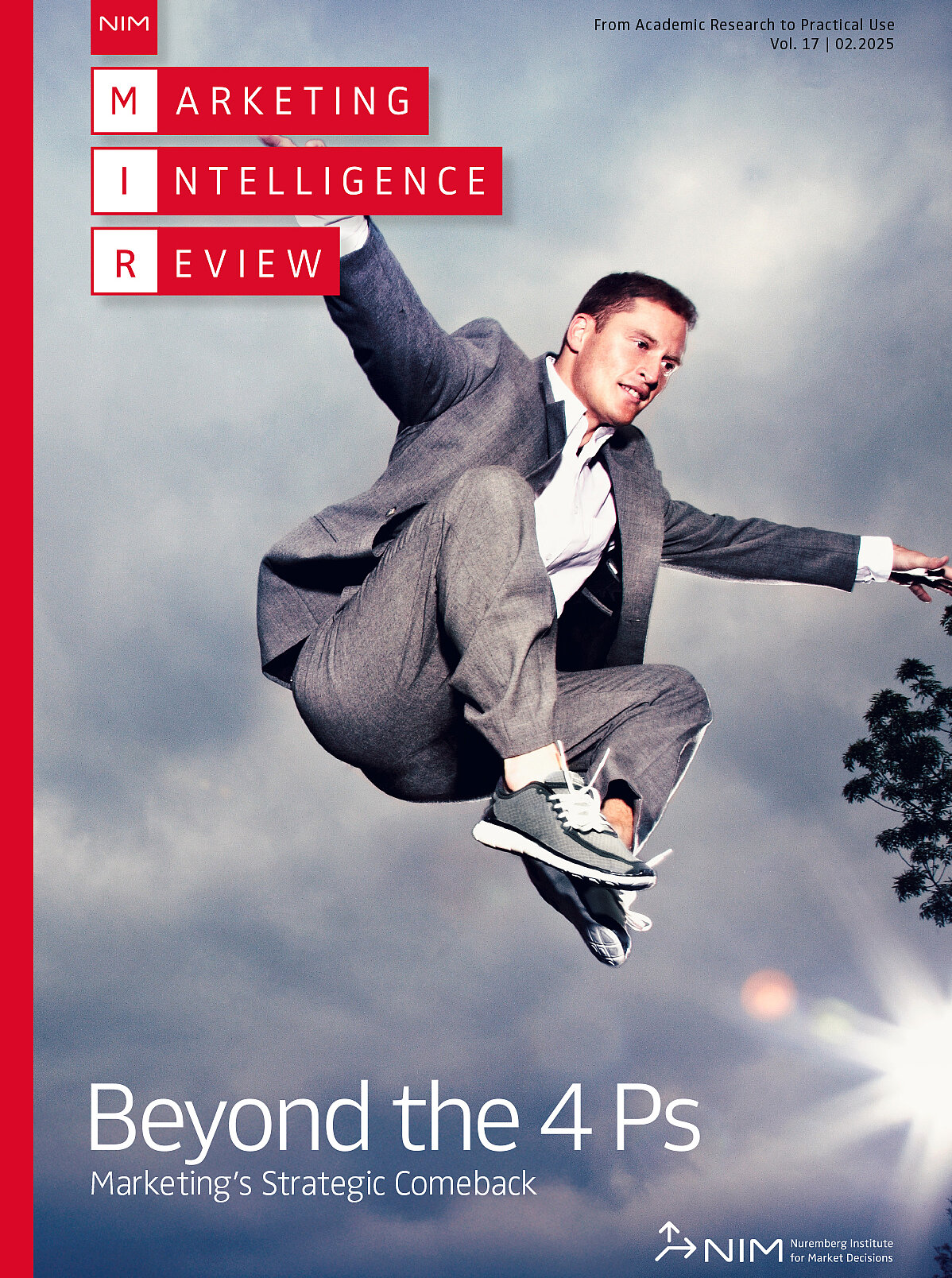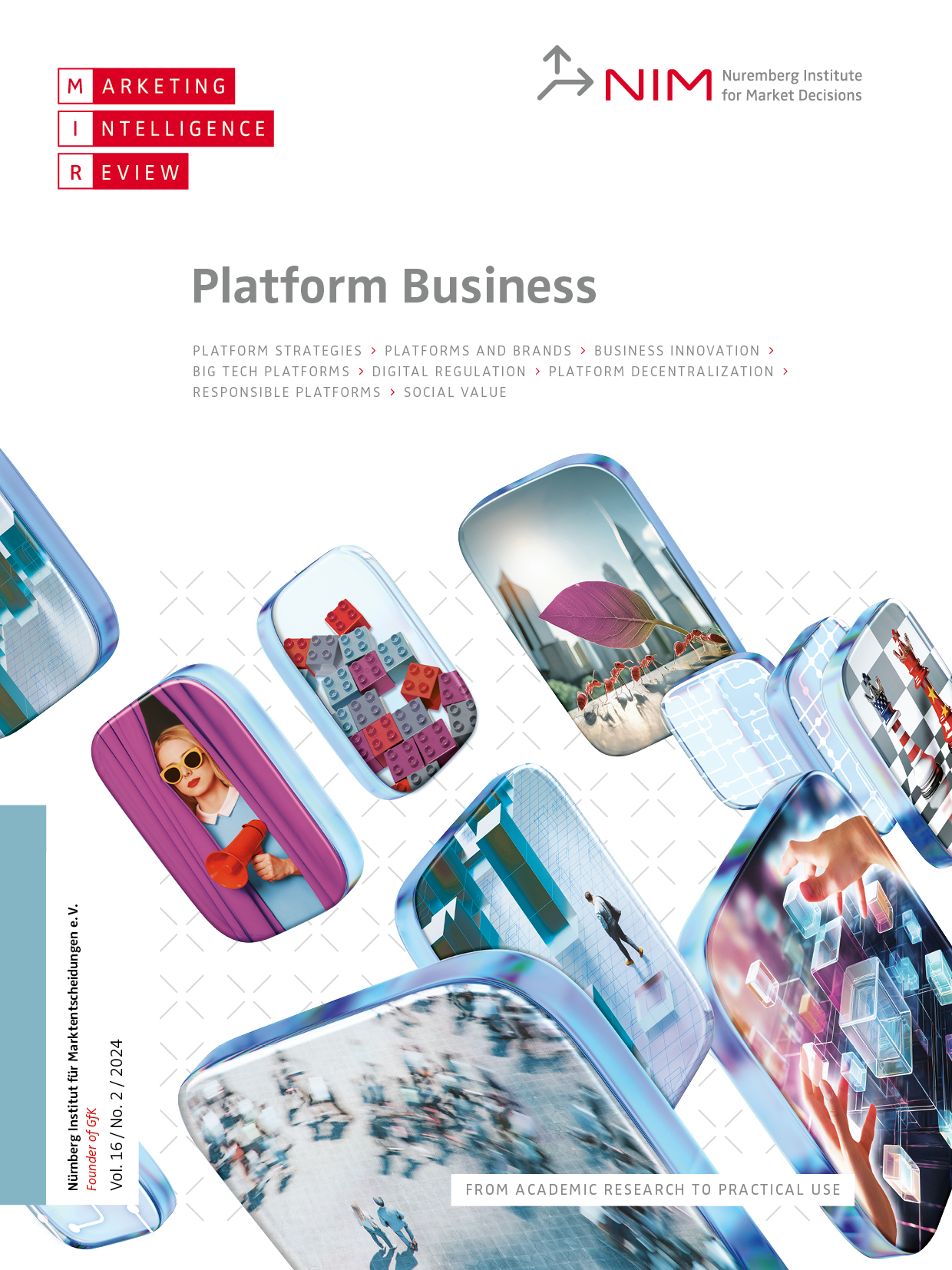Interview: eBay: Transforming an Auction House into a Retailing Platform
Interview with Eben Sermon, Vice President eBay Germany
Auction thrill for everybody – no matter if you are the buyer or seller – that´s what has made eBay famous and attractive in its early years. The internet pioneer was already born in the last millennium and has revolutionized the consumer to consumer business. Originally the first supra-regional, electronic flea market, eBay has evolved into one of the world’s largest retailing platforms. A lot has happened and the auctions that once constituted the core of the brand are more of a sideshow nowadays. In our interview, Eben Sermon, Vice President of eBay Germany, explains how the brand has been reinventing itself and talks about eBay’s innovations within the highly competitive field of e-commerce.

![[Translate to English:] [Translate to English:]](/fileadmin/_processed_/4/3/csm_reinartz_intro_vol_11_no_1_dt_424811060e.png)
![[Translate to English:] [Translate to English:]](/fileadmin/_processed_/0/6/csm_ramaswamy_ozcan_vol_11_no_1_dt_df51cfc30e.png)
![[Translate to English:] [Translate to English:]](/fileadmin/_processed_/e/3/csm_dorotic_vol_11_no_1_dt_5fad28f635.png)
![[Translate to English:] [Translate to English:]](/fileadmin/_processed_/6/a/csm_reinartz_wiegand_vol_11_no_1_dt_dd1f598120.png)
![[Translate to English:] [Translate to English:]](/fileadmin/_processed_/6/e/csm_shankar_vol_11_no_1_dt_ba4c32b686.png)
![[Translate to English:] [Translate to English:]](/fileadmin/_processed_/f/2/csm_linzbach_ea_vol_11_no_1_dt_9dd0213a82.png)
![[Translate to English:] [Translate to English:]](/fileadmin/_processed_/d/f/csm_buder_ea_vol_11_no_1_dt_53d9a1ecba.png)


